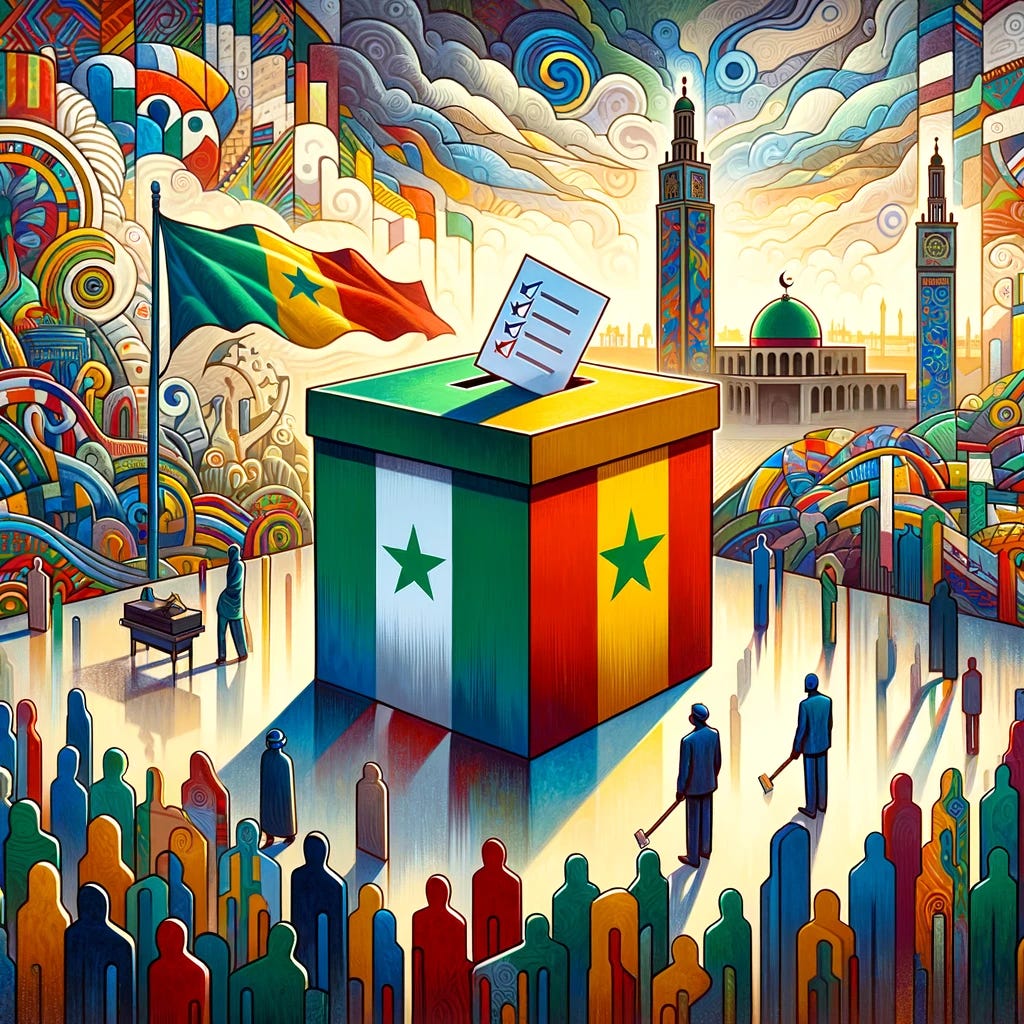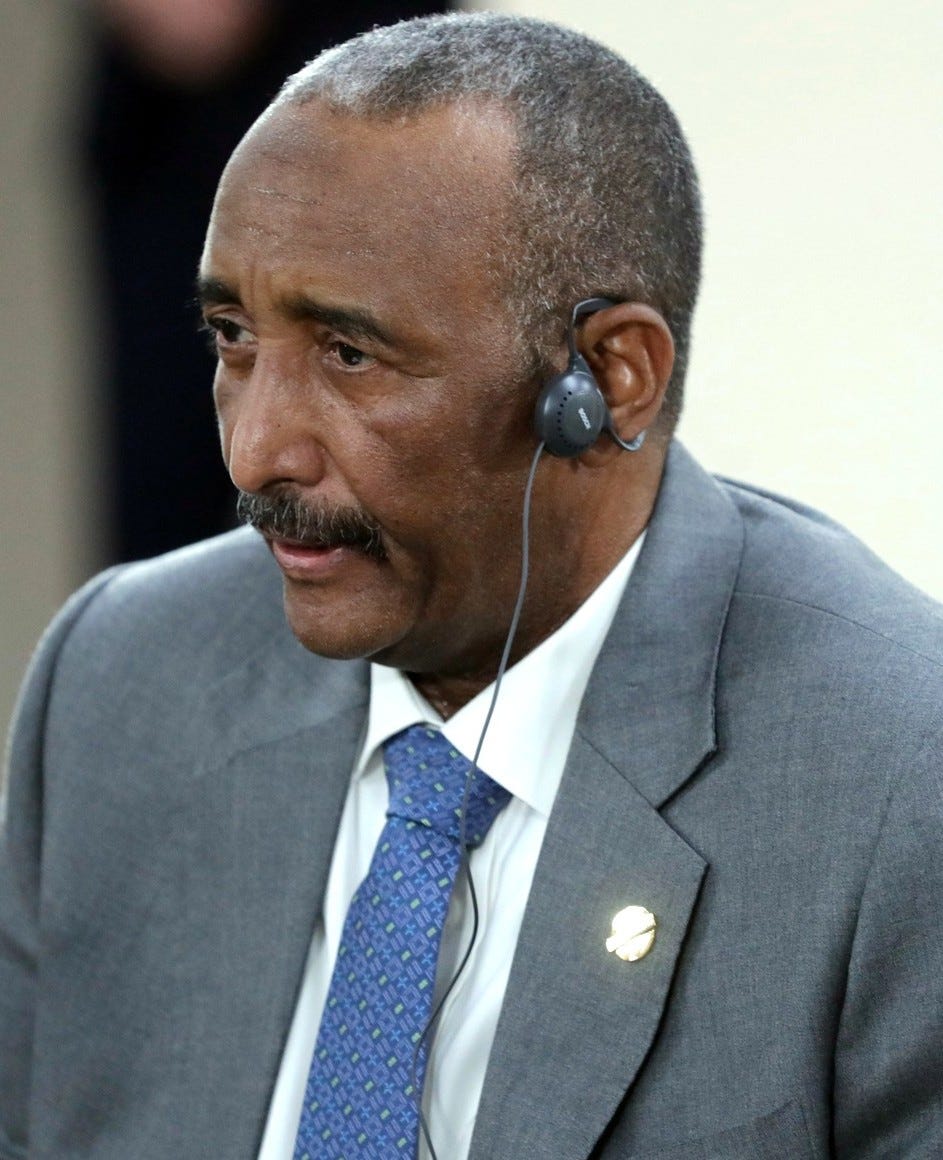🔅 Senegal's Election Surprises & UNDP's Billion-Dollar Bet on Africa's Youth
Plus, Cameroon's Landmark Malaria Vaccine & Uganda's Selfie Scandal
Photo of the Day

Brief & Bright: Africa's Top Five
Senegal's Presidential Election Has A Guest List with Some Surprising No-Shows
Senegal's constitutional council has rolled out the red carpet for 20 presidential hopefuls, but with some notable persons missing from the list of approved candidates. The big talk of the town? Opposition bigwig Ousmane Sonko and Karim Wade, offspring of ex-president Abdoulaye Wade, didn't make the cut. Current President Macky Sall is playing the gracious host, stepping down after two terms and squashing rumours of a third run. This move has chilled out the tension that was cooking up some of the worst violence in Senegal in recent times. And so, as of today, the council's list includes Sall's chosen one, Prime Minister Amadou Ba, ex-Dakar mayor Khalifa Sall (no relation to Macky). Sonko's invitation got lost in the mail due to a suspended sentence from a defamation case. Despite crying foul play, his exclusion has sparked less uproar since Sall promised not to pull a fast one with constitutional reforms. Karim Wade also missed the boat because he held dual citizenship when he threw his hat in the ring. With Sall and Sonko out, the race is as wide open as can be. A political analyst reckons it's anyone's game, with no clear frontrunner poised to nab over 50% of the votes in round one.
UNDP's "Timbuktoo": Africa's Billion-Dollar Bet on Innovation and Youth
In the snowy peaks of Davos, Switzerland, last week, where world leaders usually ski around tough issues, something different happened at the World Economic Forum's 24th Annual Meeting. The United Nations Development Programme (UNDP) decided it was time to invest in Africa's favourite resource – its young and innovative minds. The "Timbuktoo" initiative, not to be confused with the ancient city but equally ambitious, is a billion-dollar startup ecosystem. The money from the project will be used to establish eight innovation centres in eight African countries. President Paul Kagame of Rwanda was at the launch, and he isn't just talking the talk; he's walking the walk with a commitment of US$3 million to get the fund rolling (Timbuktoo will be hosted in Kigali). The initiative is more than just a fund however; it's a holistic approach to nurture the startup culture, including talking about startup-friendly laws, building global-class startups, de-risking capital, and creating University Innovation Pods (UniPods) across Africa. Africa's been on the startup sidelines for too long, holding just 0.2 per cent of global startup value. And with 89 per cent of venture capital in Africa being foreign and concentrated in just a handful of countries and sectors, Timbuktoo is aiming to be a game-changer. This year in Davos, there were no panels on development aid, and African policy-makers focused on discussing free trade, investment and the energy transition.
Cameroon's Malaria Vaccine Kickoff: A Small Shot, Big Impact
Starting this week, Cameroon will be the first to routinely jab children with a brand-new malaria vaccine. The move is part of a grand plan to tackle malaria, a disease that's as stubborn as a mosquito on a hot summer night, especially in Africa where it's responsible for 600,000 deaths, mostly in young children. The goal is to vaccinate about 250,000 children in Cameroon this year and next, and Gavi's vaccines alliance is currently working with 20 other African countries to hopefully protect over 6 million kids by 2025. Now, let's talk about the vaccine itself. It's called Mosquirix, and while it might not be perfect, it's got the World Health Organization's thumbs up. It's kind of like your first pancake – not flawless but still does the job. The vaccine is around 30% effective, needs four doses, and its superpowers start to wane after a few months. But a second malaria vaccine by Oxford University might soon be joining the party. It's cheaper, needs just three doses, and India's Serum Institute is ready to churn out up to 200 million doses a year. Ultimately, though, neither vaccine stops malaria from spreading its wings, so everyone is encouraged to keep using bed nets and bug spray for the foreseeable future.
Selfie Scandal in Uganda: When a Photo Op Turns Propaganda
Picture this: Dr. Jamechia Hoyle, a global health security consultant from the US attending a conference in Uganda, snaps a selfie with the country's long-standing President, Yoweri Museveni, back in 2017. Fast forward four years, and bam! That same photo becomes the face of a fake social media account posting state propaganda and targeting government critics. Imagine Dr. Hoyle's surprise! This fake account is part of a larger web of nearly 200 faux (and nearly identical) social profiles. Their day job? Singing praises for the Ugandan government and throwing digital tomatoes at opposition supporters and critics. The BBC suggests these accounts might originate from the Citizen Interaction Centre (GCIC), a Ugandan government agency, although it has denied the allegations. More on this story here.
Sudan's Quits IGAD
Sudan has dramatically hit the pause button on its membership with the regional bloc IGAD after the regional body tried to play peacekeeper in Sudan's ongoing conflict. For nine months, Sudan's army and the Rapid Support Forces (RSF) have been at war, and when IGAD tried to play the role of concerned neighbour and invited the RSF leader to a summit in Kampala this weekend, Sudan's military-led government was left unimpressed. Its leader, Gen Abdel Fattah al-Burhan, has since decided to quit the regional body, which has been around since '96 and includes countries like Kenya, Uganda, and Ethiopia. Over seven million Sudanese people have had to uproot their lives since the start of the way, and the death toll is over 13,000.
Food for Thought
“A hyena does not change its spots even if it moves to a different forest."
— Malawian Proverb








